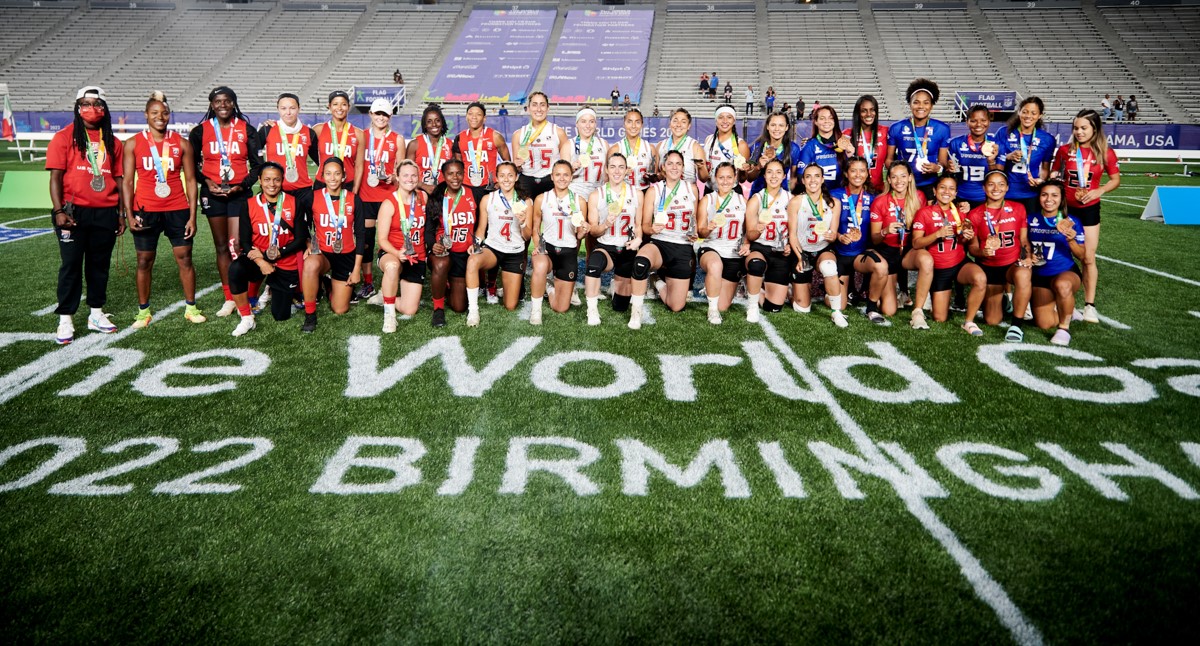When flag football features on the program of the The World Games 2025 in Chengdu, China, a total of 262 gold medals will be awarded in 35 sports and 62 disciplines during the ten days of competition.
Flag football’s highly successful debut at The World Games came in Birmingham, Alabama, in 2022, where 16 of the world’s top teams showcased their skills in thrilling competition at the iconic Legion Field. Mexico won the gold medal in the women’s final with a win over the United States, while Panama claimed bronze. The United States took gold in the men’s, with Italy winning silver and Mexico bronze.
At TWG 2025 Chengdu, around 5,000 participants coming from more than 100 nations will compete for gold across multiple sports.
Sebastian Garvens, Sports Director of the IWGA, said:
“We have been working on a draft competition schedule, allocating the sports and disciplines to individual competition days. The international federations have certain requirements here as well, and the hosts want to see their competition venues used in a sustainable way.
“IWGA wants to organize the Games in line with our values: excellence, sustainability and inclusiveness. This means that stadiums or domes may be shared between different sports. When drawing up the schedule, the requirements for TV production and the marketing of the output must also be taken into account.”
The IWGA Sports Director expects to be able to present an initial provisional schedule at the next IWGA Annual General Meeting, on May 1, 2024.
Chengdu’s choice of flag football, under the additional sports framework, reflects the discipline’s rapid growth, particularly in China, where more than 300,000 children already participate in schools’ programs. Local organisers in Chengdo chose to prioritise the women’s tournament in a context where women and girls are driving the fastest growth in flag football participation.
The inclusive, non-contact format has been hailed as an important accelerator of gender equality in American football. IFAF is committed to growing the presence of both men’s and women’s flag football in major Games and multi-sport events, to which the format’s short games and flexible venue model are highly adapted.

